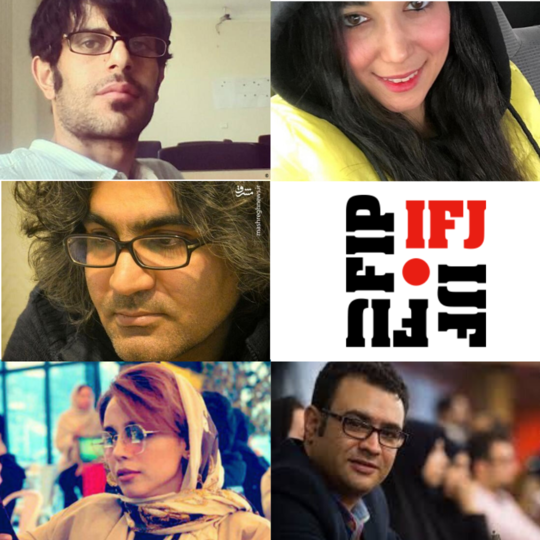Amid the rise of international pressure on Iran over the downed Ukrainian passenger plane and recent protests inside Iran, the security forces raided the homes of six journalists in Tehran and confiscated their phones, laptops, and other communication equipment.
In the early morning of Sunday 26 January, security agents raided the residence of Maziar Khosravi, former editor of Shargh and now editor-in-chief of the reformist Faraz Online. His Twitter account has also been suspended.
On Wednesday 29 January, IRGC’s intelligence agents raided the home of Yasaman Khaleghian, a former reporter of the Iranian Labour News Agency (ILNA). After searching the journalist’s house they confiscated her phone, laptop, and press card.
On Monday 3 February, the security forces raided the homes of Molud Hajizadeh and Yaghma Fashkhami. Their personal belongings were seized. Hajizadeh is a journalist at Taadol newspaper, where she covers women’s issues, and Fashkhami is a former member of the political service at Rozan newspaper and a former writer for the news website Didban Iran.
The last raid occured on Wednesday 5 February, as IRGC forces entered the home of Ehsan Bodaghi and his wife, Shabnam Nezami, both journalists. Bodaghi is a former journalist of Iran newspaper.
The six journalists have been requested to prepare for upcoming interrogation at the Culture and Media Court of Tehran.
On Tuesday 4 February, former journalist-turned-activist Mahdi Mahmudian was arrested in his house. Mahmoudian played an important role in exposing the atrocities committed at Kahrizak Detention Center in 2009, where many detainees were tortured.
The intensified crackdown on journalists and media is taking place in the run-up to parliamentary elections on February 21 and in the wake of ongoing tensions and nationwide protests over a spike in fuel prices, which started in November last year. More than ten thousand citizens, including journalists, have been detained in the past two months.
The IFJ recently reported about journalist Marzieh Amiri, who was sentenced to five years in prison, and writer Nima Saffar, sentenced to eight months in prison.
IFJ General Secretary, Anthony Bellanger, said: “The intimidation and harassment of journalists is a deplorable method of silencing public debate by governments. Iran’s citizens have the right to be informed by independent journalists, who should be allowed to work without the fear of secret agents raiding their homes and stealing the equipment they need to do their work.”


